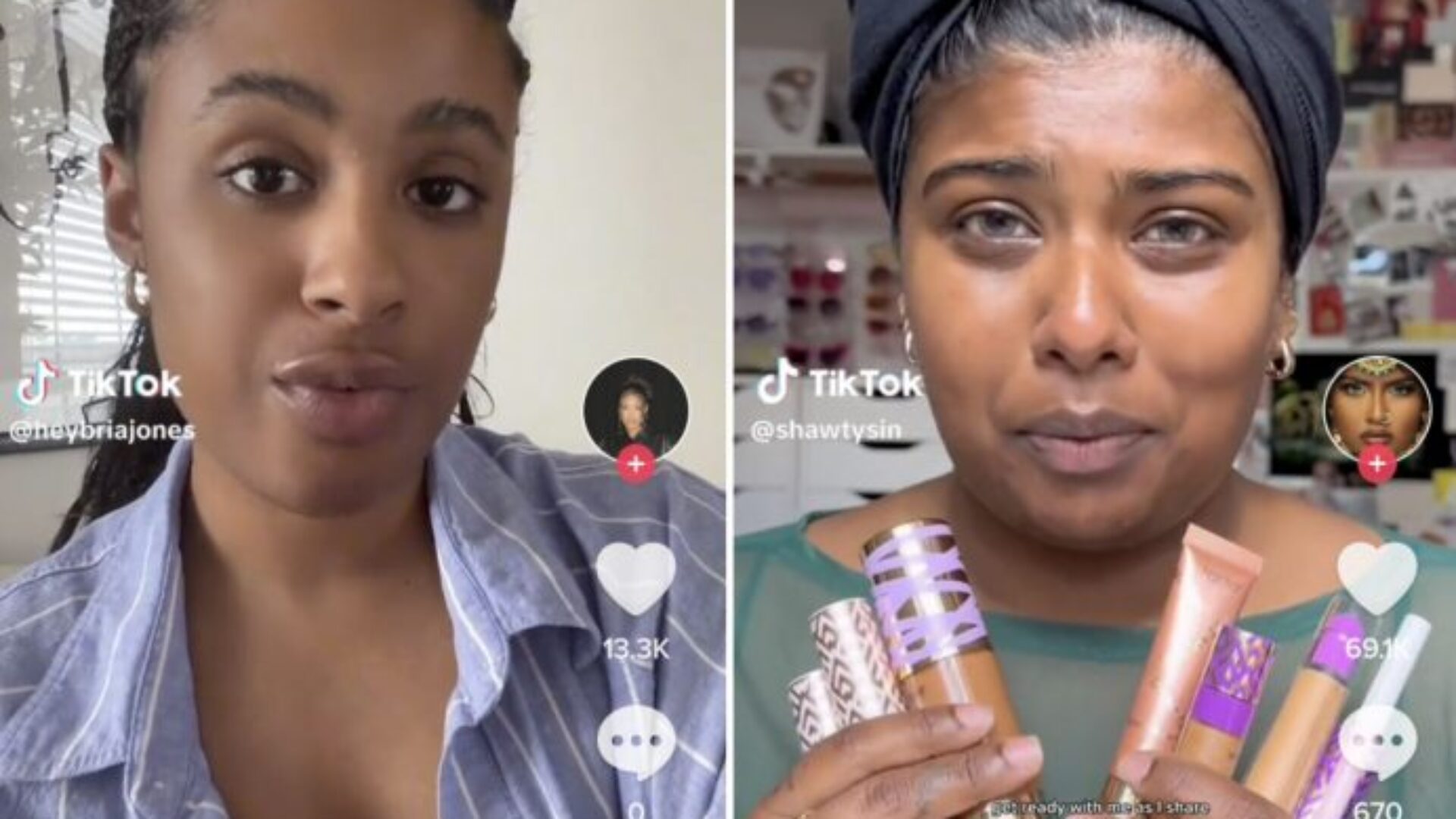
It feels like 2017 again after the drama that ensued over the weekend in the beauty community. One thing Tarte Cosmetics is known for, is stirring up controversy online like lack of shade ranges or unfair treatment of young creators of color in the makeup industry.
Suppose you were heavy on the beauty side of Youtube back in the late 2010s. In that case, you remember the infamous conversation surrounding Tarte’s lack of shade diversity when the company released the Shape Tape Foundation.
OG influencers like Jackie Aina, Alissa Ashley and Shayla Mitchell are known for their memorable videos sharing their thoughts on the lack of inclusion Tarte has had for Black creators.
“Tarte has to be the most whitewashed brand out there, from their marketing to their Instagram,” Aina said in her video. “This brand just embodies the exact opposite of what I stand for … They don’t do anything that makes people feel included… This foundation launch just reinforced that for me.”
In 2023, we’re back with the same narrative showcasing the downside of being a Black influencer. Over the weekend, Bria Jones took to TikTok to share her grievances with Tarte Cosmetics during a company brand trip where they invited many influencers to join.
“As grateful as I am to be invited on a Tarte trip, I was sad to realize my experience was going to be different than my friends that were also invited,” Jones said. “I have been on many brand trips, and typically everyone is treated the same, so this caught me off guard. I wish I had the heads up.”
Throughout the weekend, many think pieces and shade have been thrown across all timelines from TikTok to Twitter. Still, the ultimate issue is that Black creators (no matter what platform) continue to receive mistreatment than their white counterparts even if they have a massive following and engagement.
Influencer culture has grown exponentially since the late 2010s, and now it has become a career path that many Gen-Z’ers aspire to have, but things like this can be extremely disheartening.
According to Insider, a study found that 77% of Black content creators were considered nano- and micro-influencers with fewer than 50,000 followers. The average compensation from brands in this tier was $27,000 per year. In comparison, macro-influencers — 43% of white respondents and 23% of Black respondents — averaged over $100,000 per year.
Watching the drama unfold felt more profound than the usual petty drama within the beauty community. Still, it continues to show the constant disadvantage that creators of color are up against.
Jones later deleted her original video and posted another, clearing up the miscommunication between her and Tarte. Other influencers such as Fannita Legget and Niké of Specs and Blazers have come out to speak about the Tarte brand trip situation, but it only continues to divide creators of color.
Through Jones’ clarification video, now is the time to see the figures online that are open to discussing the change that needs to be done and holding these brands accountable post-2020’s racial reckoning.
About Kenyatta: Clark Atlanta University and Medill School alumna Kenyatta Victoria is the Girls United writer covering everything from news, pop culture, lifestyle, and investigative stories. When not reporting, she’s diving deep into her curated playlists or binging her favorite comfort shows.